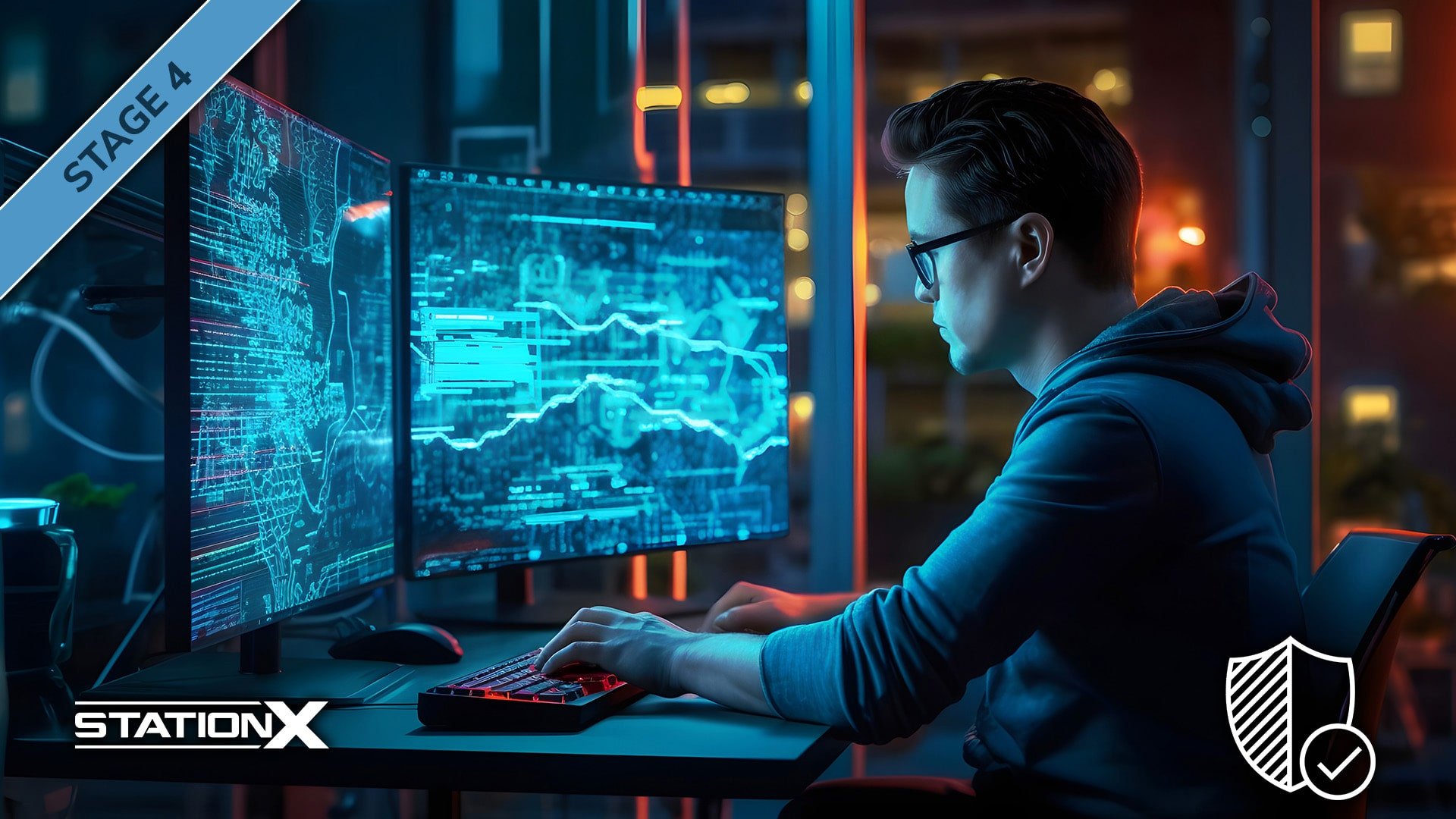Hands-On Digital Forensics Course
Are you ready to gain practical skills in digital forensics that go beyond theory and PowerPoint? This hands-on digital forensics course is your gateway to mastering the tools, techniques, and responsibilities professionals use to identify, collect, and analyze digital evidence.

What You’ll Learn
This Hands-On Digital Forensics Course will teach you:
- Forensic image creation:
Safely clone drives and devices for analysis. - Digital evidence recovery:
Retrieve deleted files from Windows and Linux systems. - Computer forensics tools:
Use Autopsy, Wireshark, and FTK Imager effectively. - Malware analysis:
Detect and examine malicious code in forensic environments.
- Incident response:
Investigate cyber intrusions and trace unauthorized access. - Reporting procedures:
Produce legal, professional digital forensics reports. - Hash values:
Verify data integrity with cryptographic hashes. - Mobile forensics:
Understand tools and approaches for analyzing mobile devices.
Included in the Digital Forensics Course
Suitable for the Following Careers
Course Content
Section 01: Course Overview
Section 02: Building Your Forensics Lab Environment Using VirtualBox
Section 03: Video Lectures with PowerPoints
Section 04: New Course Content
Section 05: Troubleshooting VirtualBox
Section 06: Using Kali Forensic Mode and Autopsy
CSI Linux Investigator
Section 07: Digital Forensics Case Management
Section 08: Open-source intelligence (OSINT)
Section 09: Using Shodan to Search for Vulnerable devices
Section 10: Computer Forensics
Section 11: Reverse Engineering and Malware Analysis
Section 12: Malware Hunting with Sysinternal Tools
Section 13: Stenography
Section 14: Network forensics Using Wireshark
Section 15: Practice What You learned
OPEN FULL CURRICULUM
Requirements
Description of Hands-On Digital Forensics Course
This hands-on digital forensics course teaches students how to conduct thorough investigations using real tools, virtual labs, and forensic methodologies. Through practical training, you’ll learn to capture forensic images, recover deleted files, and analyze cyber threats like malware across various platforms including Windows and mobile devices.
You’ll explore the full investigation process—from collecting digital evidence to producing final reports—with an emphasis on cybersecurity context and compliance. The course includes practical exercises with Autopsy, FTK Imager, and Ghidra, plus OSINT techniques, Windows registry analysis, and memory forensics using the Volatility Framework.
- Acquire and examine digital evidence using professional forensic tools
- Conduct malware analysis and memory forensics in lab environments
- Practice network forensics using Wireshark and real-world traffic
- Simulate incident response scenarios and test reporting skills
- Apply digital forensics concepts to mobile devices and cloud systems
- Explore legal aspects of digital forensics and chain-of-custody practices
- Build a self-paced lab using CSI Linux and Kali Forensic Mode
Upon successful completion of this program, students will gain practical cybersecurity skills and the confidence to identify, analyze, and report on digital threats, contributing to investigations across corporate and law enforcement environments. They’ll be prepared to assist organizations with critical forensic objectives, understand the importance of preserving digital evidence, and enroll in future advanced studies with a solid foundation.
Who Is This Course For
This course is ideal for cybersecurity professionals, ethical hackers, and aspiring forensic investigators seeking practical, tool-based training. It also supports law enforcement personnel and IT analysts preparing for certifications or departmental forensics roles.
Course Instructor
Prof. K is a seasoned technology expert with a Master of Science in Cyber Security from UMUC (2015) and a Master of Science in Information Technology from Capella University (2007). Since 1998, he has held various roles, including Microsoft Support Technician, Microsoft Certified Trainer, Technology Support Specialist, Senior Network Technology Consultant, IT Auditor, and currently, owner and operator of CLK Technology Solutions in Tucson, Arizona.
His expertise is designing, building, and supporting network infrastructures and security. Prof. K has taught online since 2008 and works with several online universities and colleges.
He holds multiple certifications, including MCTS in Windows Server 2008 Active Directory, Applications Infrastructure, and Network Infrastructure Configuration, as well as A+, Network+, Security+, CompTIA Secure Infrastructure Specialist (CSIS), and CompTIA IT Operations Specialist (CIOS). Prof. K's extensive experience and credentials make him a highly skilled and knowledgeable instructor in the field of technology.
Read More
Read Less
Testimonials

Orson A.
Taking this course transformed my understanding of digital investigations. I explored digital forensics essentials through hands-on labs, practiced digital forensics investigation techniques, and gained clarity using tools offered in this free digital forensics program. It's a great foundation for building real cybersecurity skills.

Billy E.
As a student aiming to enter law enforcement cybersecurity, this digital forensics course provided the structured knowledge I needed. From mobile forensics and malware analysis to reviewing hash values and managing digital evidence, every module added critical value to my training.

Willow S.
I enrolled to improve my forensic analysis capabilities for incident response, and this course exceeded expectations. It covers different types of investigation methodologies, computer forensics concepts, and the responsibilities professionals hold when handling sensitive data across various devices and networks.
Show More
Show Less
 Prof. K
Prof. K


